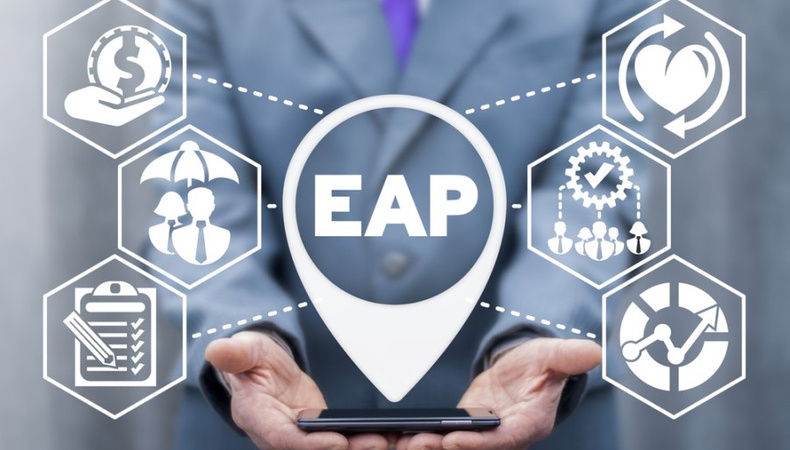Why and how to offer an employee assistance programme

As an employer, it’s important that you tackle this, for both your employees’ health and wellbeing as well as your business success. Here are some key reasons why you should consider offering an employee assistance programme (EAP) to your workforce:
Causes of work-related mental health issues
There are many things that could be affecting your employees’ mental health this winter, including the introduction of hybrid working, which could be causing social anxiety as we return to an office with more people than we’re used to being around as well as unfamiliar safety measures.
Employees who have returned from furlough could have anxieties about returning to work after a long period away and doubts around job security.
On top of those issues, remote working has caused many to feel isolated, with 41% of employees saying that socialising is what they missed most about being in an office, and 21% of employees saying that working from home has affected their mental health, according to Gazprom Marketing and Trading’s Has working from home changed the way we work? (2021) study.
In the long-term, social isolation can impact your teams’ physical and mental health, as well as lead to feelings of being left out of their workplace and becoming disengaged.
Understanding the impacts of mental health
As a business, you need to be supporting your teams with their mental health, here’s why:
- It’s costing you money: analysis by Deloitte in 2020 found that poor mental health costs UK employers up to £45 billion each year. Plus, investing in mental health means you’re likely to see a return on your investment, employers investing in mental health can see an average return of £5 for every £1 spent.
- It can help you address the war for talent: 40% of UK employees would look for a new job if their employer didn’t support their mental and emotional wellbeing, found Lime Global’s Keeping up Appearances: How Pleasanteeism is Eroding Resilience report (2021). So having mental health support in place can help you keep your top talent.
- Reduce absenteeism and presenteeism: tackling mental health will help you reduce the number of employees who are absent or who are present at work but unproductive.
How EAPs can help
An EAP gives your employees access to the support they need with any of the issues they’re having, through face-to-face counselling, email or phone support whenever and wherever they need it.
EAPs give your teams confidential support from professionals, which might make it easier for them to talk about their issues when compared to a colleague, manager or even a friend.
They can help your team with many of their concerns including mental health, workplace issues, personal worries and financial support.
How to make it a success
Just offering an EAP isn’t enough to truly support your employees’ mental health, you need to make sure your teams know about it. Try to communicate about your EAP regularly through emails, newsletters, and any other internal communications you may use. You could tie it into relevant awareness days or tailor it to different issues like stress, anxiety or finances.
Train your line mangers on what support is available as well, because they’re often the first to notice signs that a colleague might need help. If managers already have the information about the EAP and how to access it, those who need help will be able to access it more smoothly.
The author is Graham James, commercial director at Sodexo Engage.
This article is provided by Sodexo Engage.
Supplied by REBA Associate Member, Pluxee UK
Pluxee UK, is a leading employee benefits and engagement partner that opens up a world of opportunities to help people enjoy more of what really matters in their lives.







